Ultimate Comparison of Condensing vs Non Condensing Tankless Water Heaters
Homeowners often face a choice between two types of water heaters: condensing and non-condensing tankless models. Understanding the distinctions between these options is crucial in making an informed decision. This guide will delve into the differences between condensing and non-condensing tankless water heaters. By the end, you'll have the confidence to select the perfect water heater replacement for your Plano home that meets your specific needs and living space requirements.

What is a tankless water heater and how does it work?
A tankless water heater is a modern and energy-efficient alternative to traditional water heaters. Unlike standard water heaters that store and heat a large volume of water in a tank, a tankless water heater heats water on demand as it flows through the unit. The primary mechanism behind a tankless water heater's operation is a heat exchanger. When a hot water faucet is turned on, cold water enters the unit and flows through the heat exchanger. Either an electric heating element or a gas burner, depending on the type of unit, quickly heats the water to the desired temperature as it passes through the exchanger. The heating process is triggered by sensors that detect the water flow, signaling the heating element or burner to activate. Once the hot water tap is closed, the heating element or burner shuts off to conserve energy. One of the significant advantages of a tankless water heater is that it provides an endless supply of hot water. Since it heats water on demand, there is no limit to the amount of hot water available, as long as the unit can keep up with the flow rate. Additionally, tankless water heaters are more energy-efficient compared to traditional tank-style water heaters. They eliminate the standby heat loss associated with storing large volumes of hot water in a tank, resulting in reduced energy consumption and lower utility bills. Moreover, tankless water heaters have a longer lifespan than standard water heaters, often lasting 20 years or more.

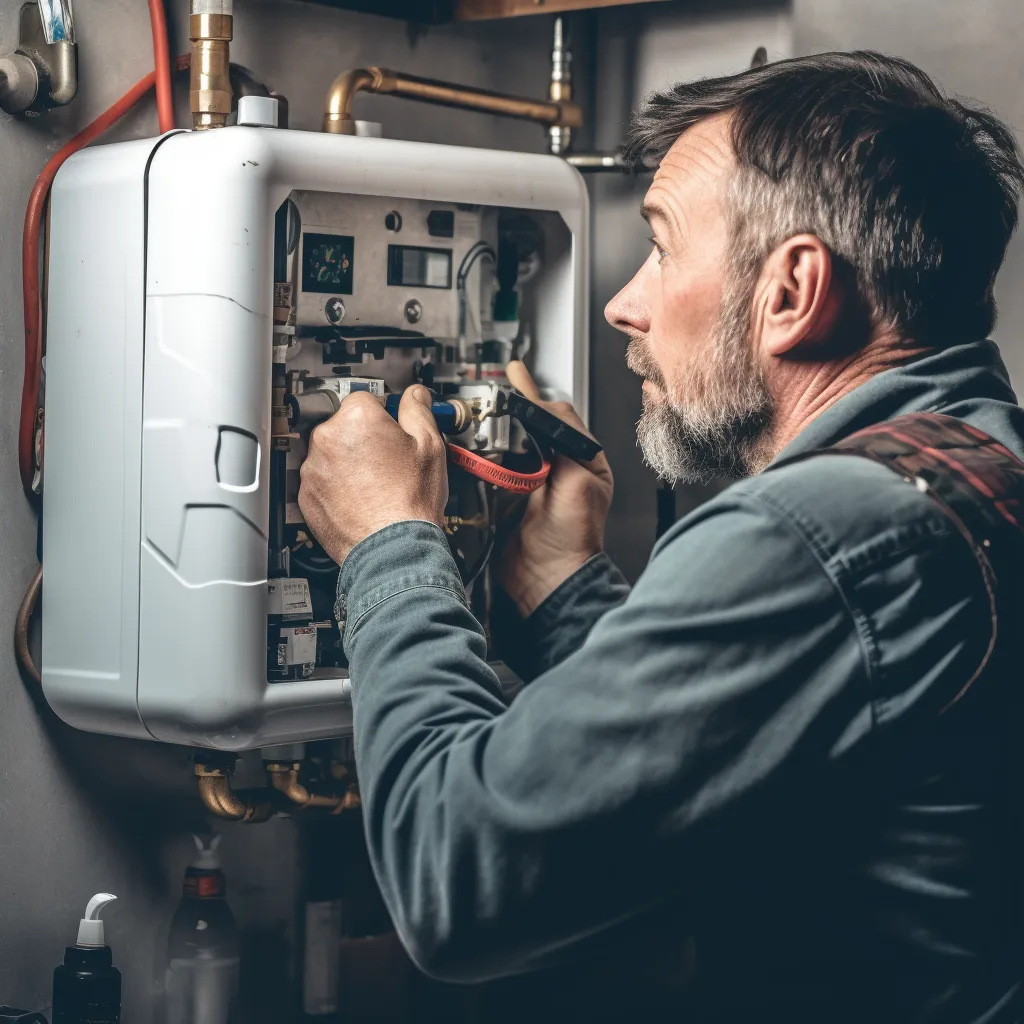
What is a condensing tankless water heater?
A condensing tankless water heater is an innovative and efficient system that provides hot water on demand without the need for a storage tank. Unlike traditional water heaters, which continuously consume energy to keep a large amount of water heated at all times, a condensing tankless water heater only heats the water when it is needed. This results in significant energy savings and reduced utility costs. The main difference between a condensing tankless water heater and a non-condensing model lies in their heat exchangers. A condensing tankless water heater utilizes a secondary heat exchanger that extracts additional heat from the exhaust gases before they are vented out. This captured heat is then used to preheat the incoming cold water, boosting the overall efficiency of the system. This process creates condensation within the unit, hence the term "condensing" water heater. The condensation is safely removed through a dedicated drain pipe, eliminating the need for a traditional chimney or complex venting system. In addition to lower energy consumption and cost savings, condensing tankless water heaters also offer other benefits. They deliver a continuous supply of hot water, ensuring that you never run out during peak usage periods. They also have a compact design, taking up less space compared to traditional water heaters with bulky storage tanks.
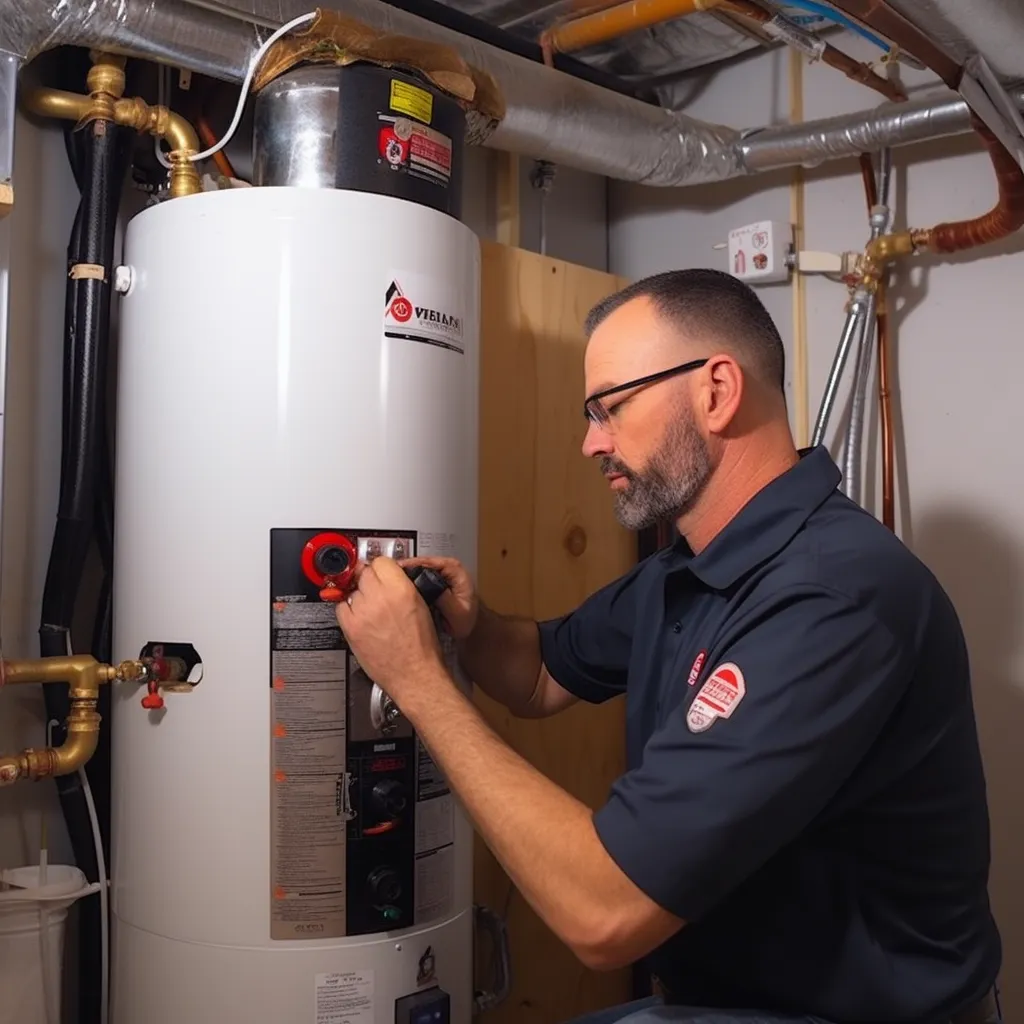
What are the differences: condensing vs non condensing tankless water heaters
Understanding the differences between condensing and non-condensing water heaters can help you make an informed decision when it comes to choosing the right water heater for your needs. Condensing tankless water heaters utilize a secondary heat exchanger to extract additional heat from the combustion gases. This process allows them to achieve higher efficiency levels compared to their non-condensing counterparts. By condensing the exhaust gases and recycling the heat, condensing tankless water heaters can potentially achieve efficiency ratings above 90%. This not only helps reduce energy consumption but also results in significant cost savings over time. In contrast, non-condensing tankless water heaters do not utilize a secondary heat exchanger. As a result, they have lower efficiency ratings compared to condensing units, typically ranging from 80-85%. While still more efficient than traditional tank water heaters, non-condensing units may not offer the same energy savings as condensing models. The decision to choose between condensing and non-condensing tankless water heaters depends on several factors. Firstly, if energy efficiency is a top priority, then a condensing unit may be the better choice. The higher upfront cost of a condensing unit may be offset by long-term energy savings. Additionally, condensing units are usually more compact, making them suitable for smaller spaces. On the other hand, non-condensing tankless water heaters are often more affordable upfront and may be a practical choice for homeowners on a budget. They can still provide significant energy savings compared to traditional tank water heaters.
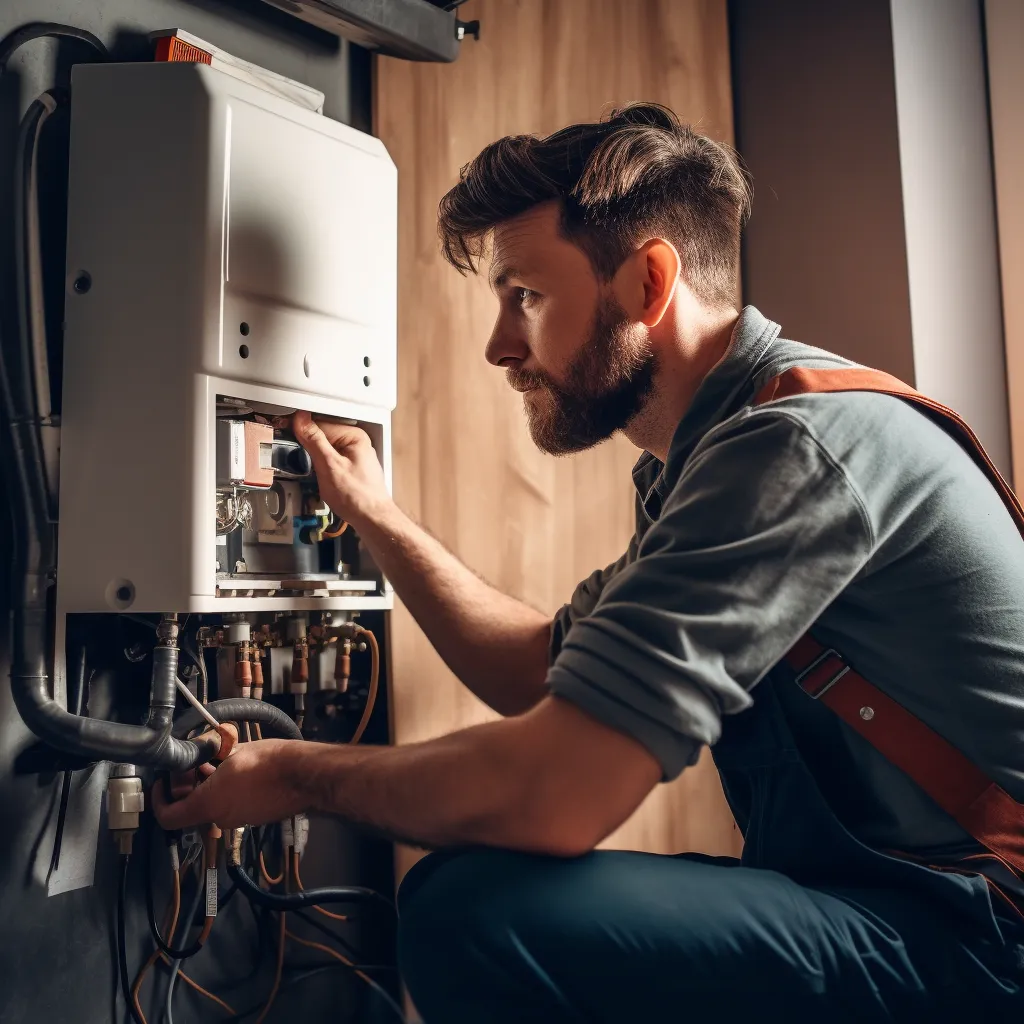
What are the benefits of a condensing tankless water heater?
A condensing tankless water heater offers numerous benefits, especially when considering a water heater replacement in Plano. Unlike traditional tank water heaters, condensing tankless water heaters provide on-demand hot water without the need for a storage tank. Here are some key advantages of choosing a condensing tankless water heater:

Energy Efficiency: Condensing tankless water heaters are renowned for their exceptional energy efficiency. They use advanced technology to heat water only when it is required, eliminating the standby energy losses associated with traditional tank water heaters. These units also have a higher energy factor (EF) rating, resulting in lower energy consumption and reduced utility bills.
Cost Savings: With their energy-efficient design, condensing tankless water heaters can significantly reduce energy expenses over time. Although the initial purchase and installation costs may be higher than conventional water heaters, the savings on monthly energy bills can quickly offset the investment. Additionally, these units have a longer lifespan, reducing the frequency of water heater replacements.
Continuous Hot Water: One of the main advantages of a condensing tankless water heater is the ability to deliver a continuous supply of hot water. As these units heat water as it flows through, there is no need to worry about running out of hot water during long showers or while performing multiple tasks simultaneously.
Space Saving: Condensing tankless water heaters are compact and wall-mounted, allowing for maximum space utilization. Unlike the bulky storage tanks of traditional water heaters, condensing units can be installed in tight spaces or even mounted outside, freeing up valuable storage area in homes or businesses.
Environmentally Friendly: By delivering hot water only when needed, condensing tankless water heaters reduce water waste and minimize their carbon footprint. They also produce fewer greenhouse gas emissions compared to conventional water heaters, making them an eco-friendly choice for homeowners who prioritize sustainability.
Enhanced Durability: Condensing tankless water heaters are built to last. With proper maintenance and care, these units can have a lifespan of up to 20 years, almost double the average lifespan of traditional water heaters. This durability not only saves money in the long run but also reduces the need for frequent water heater replacements.
What are the disadvantages of a condensing tankless water heater?
There are a few potential disadvantages to consider when it comes to condensing tankless water heaters:

One of the main drawbacks is the initial cost. Condensing units tend to be more expensive to purchase and install compared to non-condensing models.
These units often require specialized venting systems, which can further contribute to the overall cost.
Another disadvantage is the potential for reduced flow rate. While condensing tankless water heaters are efficient in heating water, they may have a lower flow rate compared to non-condensing units. This means that simultaneous hot water usage in multiple areas of a home may be limited.
Condensing tankless water heaters may also have specific requirements for gas and water pressure. If these requirements are not met, the unit may not operate efficiently or may even fail to function properly.
Maintenance is another consideration. Due to the nature of condensing tankless water heaters, they may require more frequent maintenance and descaling to prevent mineral buildup and ensure optimal performance. This can be an additional cost and inconvenience for homeowners.
Condensing tankless water heaters often have a larger physical footprint compared to traditional tank water heaters. This can be a disadvantage for homeowners with limited space availability for installation.
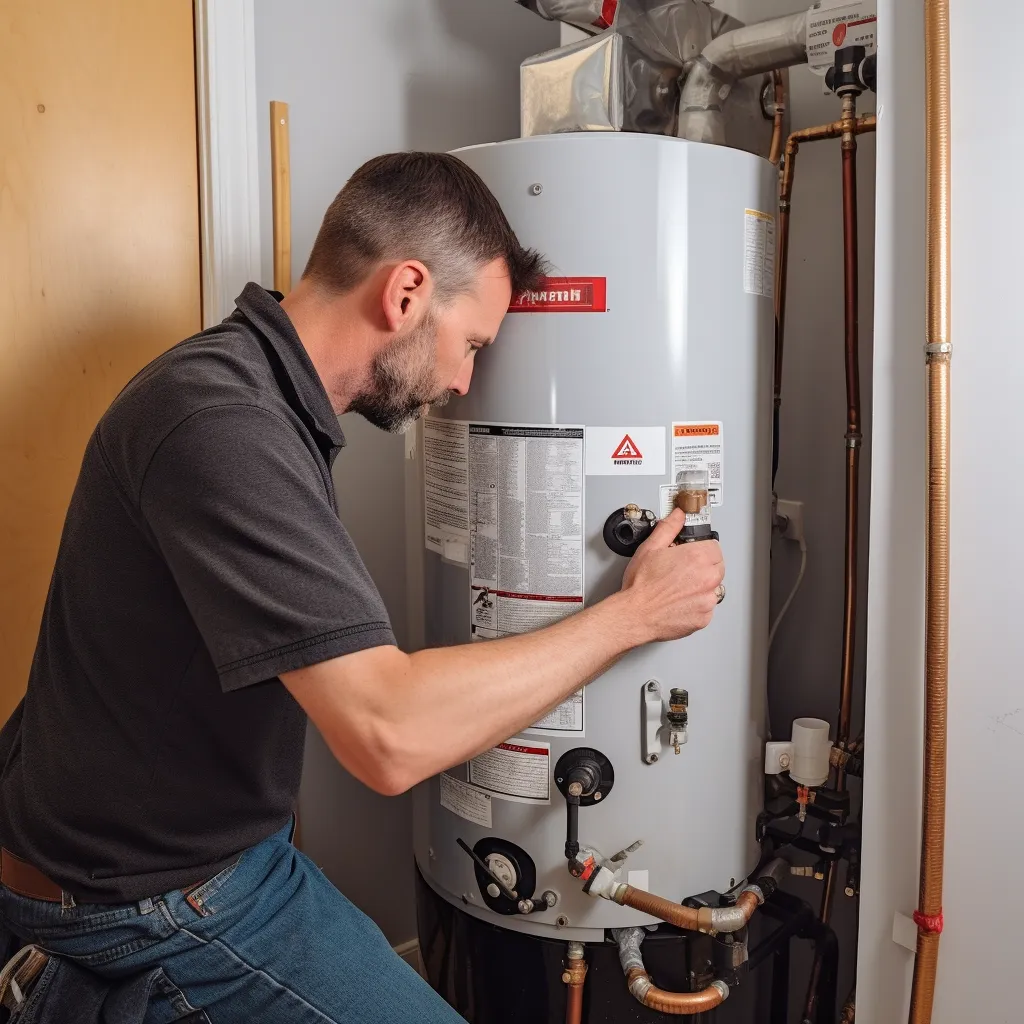
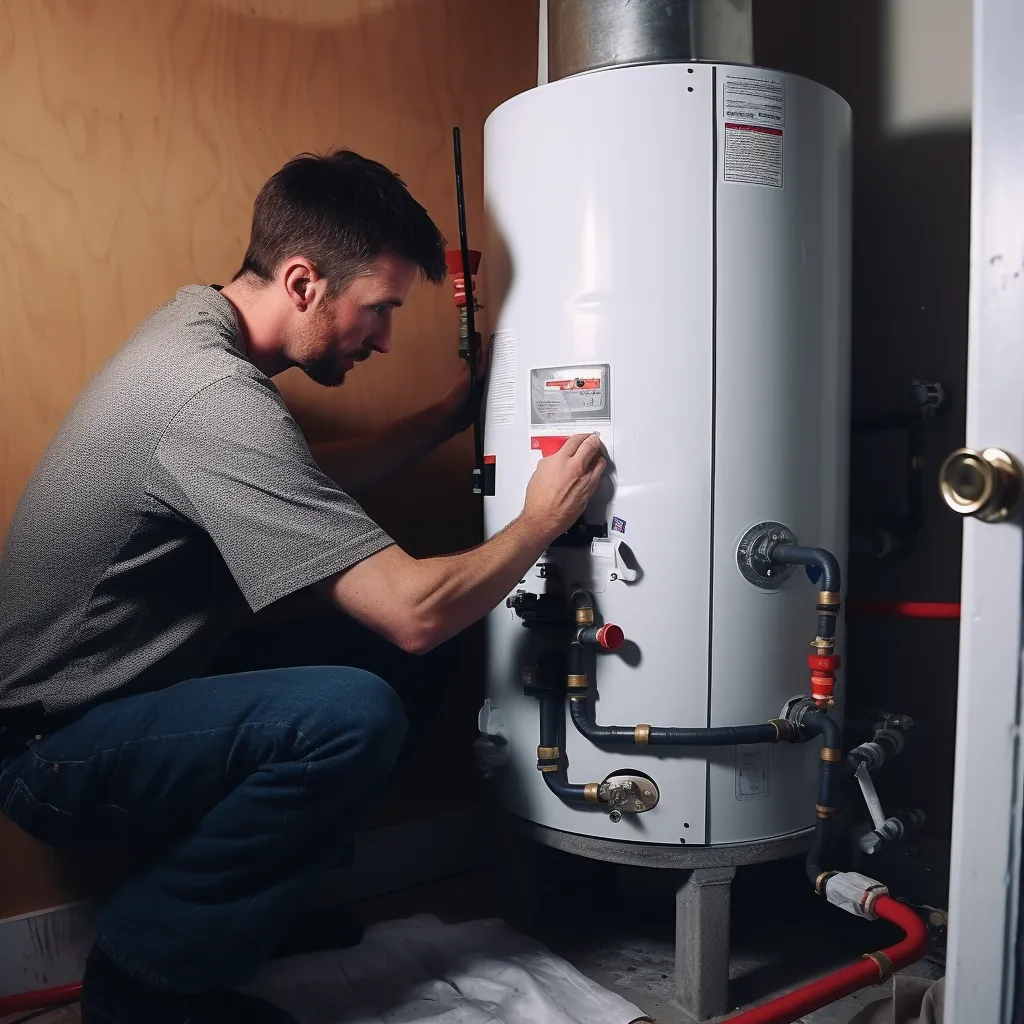
Are condensing tankless water heaters energy-efficient?
When it comes to energy efficiency, condensing tankless water heaters are a top choice. These innovative devices have revolutionized the way we heat water, ensuring both cost savings and environmental sustainability. So, if you are considering water heater replacement, you should definitely explore condensing tankless options.
The primary reason behind the energy efficiency of condensing tankless water heaters is their ability to effectively utilize heat from exhaust gases. Unlike traditional tank-based water heaters that waste a significant amount of heat, condensing tankless models capture and reuse that heat to warm up your water. This process not only conserves energy but also reduces your monthly energy bills.
Condensing tankless water heaters are equipped with advanced technology that allows them to operate only when hot water is needed. This means they don't have to continually heat and store a large amount of water, further reducing energy consumption. With this on-demand system, you no longer have to worry about running out of hot water or wasting energy on reheating unused water.
In terms of cost savings, condensing tankless water heaters offer considerable benefits in the long run. While the initial installation cost may be higher compared to traditional water heaters, their efficiency helps to offset this expense over time. With lower energy bills and reduced maintenance costs, you'll start reaping the financial benefits of your investment.
Considering the environmental impact, condensing tankless water heaters contribute significantly to reducing carbon emissions. By utilizing exhaust gases and consuming less energy overall, they contribute to a greener and more sustainable future.

Are non condensing tankless water heaters energy-efficient?
When it comes to energy efficiency, non-condensing tankless water heaters may not be the ideal choice. While they do offer some benefits in terms of on-demand hot water and space-saving design, their energy consumption may be higher compared to condensing tankless water heaters. Non-condensing tankless water heaters work by heating water as it passes through a heat exchanger. However, these systems release hot exhaust gases through a vent, resulting in energy waste. This inefficiency prevents them from fully utilizing the heat produced during the combustion process.
On the other hand, condensing tankless water heaters are designed to capture and extract heat from the exhaust gases. By doing so, they achieve higher energy efficiency, making them a more environmentally-friendly and cost-effective option in the long run. Although non-condensing tankless water heaters may be less efficient, they can still offer benefits like unlimited hot water and a longer lifespan. Additionally, they may be more affordable initially, making them a viable choice for homeowners looking for a temporary solution or those on a tight budget.
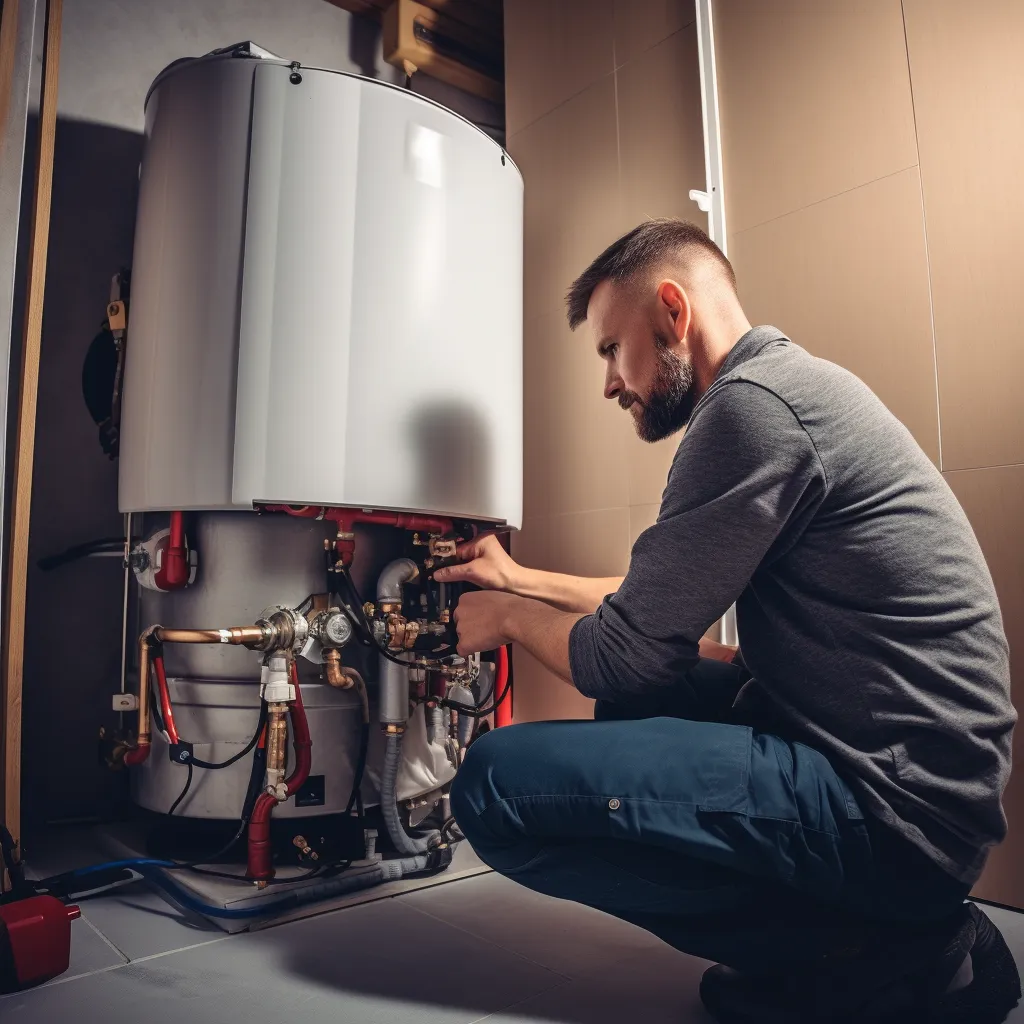
What is the cost to buy and install a condensing tankless water heater?
The average cost of purchasing a condensing tankless water heater itself typically ranges from $800 to $1,500, depending on the brand, model, and capacity. Higher-end units with more advanced features may cost even more. It's important to consider the long-term energy savings these units can provide, which can offset the initial investment. When it comes to installation, there are additional costs to consider. The complexity of the installation process, along with any necessary modifications or upgrades to existing plumbing and gas lines, can affect the overall installation cost. On average, homeowners can expect to pay between $1,500 and $3,000 for professional installation. It's worth noting that these costs are estimates and can vary depending on regional factors, such as labor rates and material costs. Additionally, it's always recommended to consult with a licensed plumber or HVAC professional to assess your specific needs and provide an accurate estimate for water heater replacement in Plano.
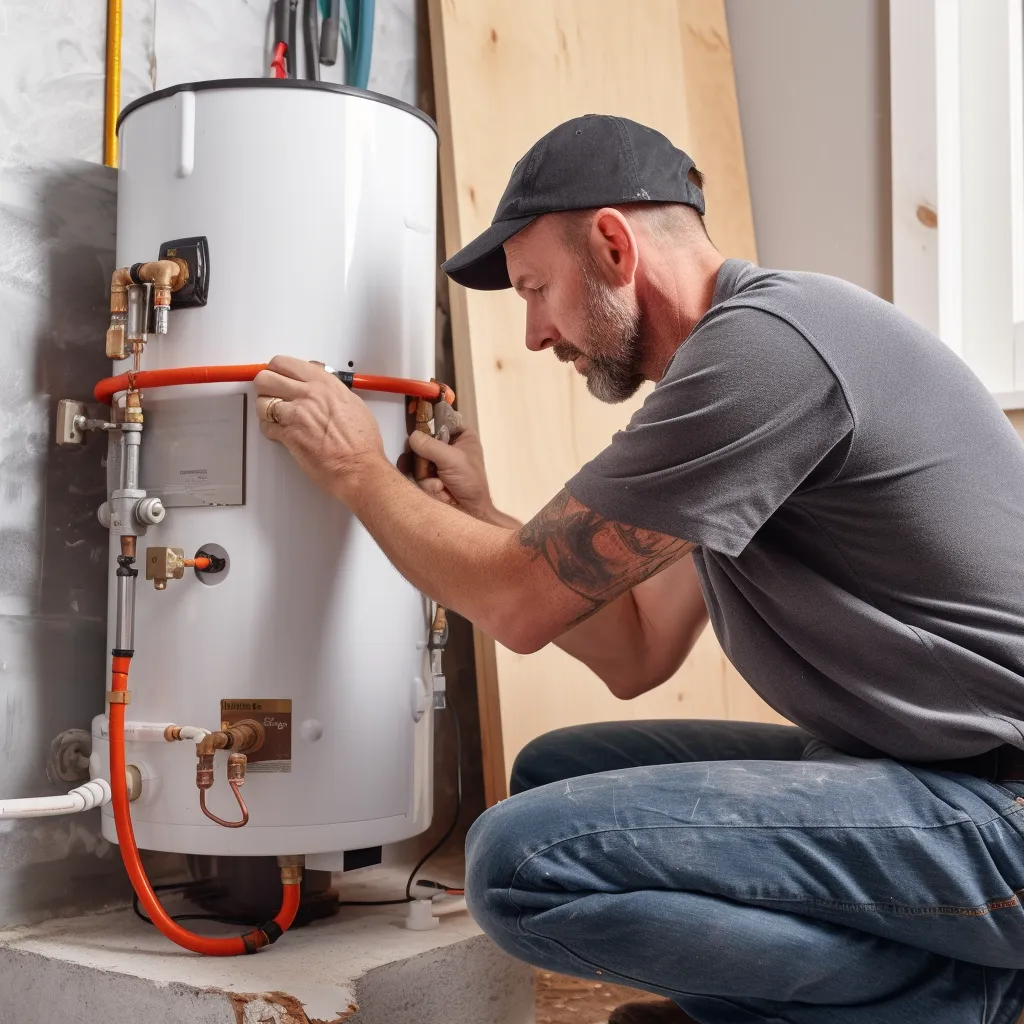
What is the cost to buy and install a non condensing tankless water heater?
The average cost for a non-condensing tankless water heater ranges between $1,000 and $3,000, excluding installation. However, it's important to note that this is just an estimate, and prices can vary. When it comes to installation, it is highly recommended to hire a professional plumber to ensure proper installation and to avoid any potential issues. Installation costs typically range from $500 to $1,500, but this can also vary based on the complexity of the installation. To get an accurate estimate for your specific needs and requirements, it is best to contact local plumbing companies in Plano who can provide you with a detailed quote. They will take into account factors such as the type and size of the water heater you need, the existing plumbing setup, and any additional work that may be required.
What are maintenance requirements for condensing tankless water heaters?
When it comes to the maintenance requirements for condensing tankless water heaters, there are several factors to consider. These modern, energy-efficient appliances offer a convenient and space-saving solution for homeowners in need of continuous hot water supply. However, like any other system, they do require regular maintenance to ensure optimal performance and longevity.

One of the main maintenance tasks for condensing tankless water heaters is descaling. Over time, mineral deposits can accumulate in the heat exchanger, reducing its efficiency and potentially causing damage. To prevent this, it is recommended to flush the system annually or as per the manufacturer's instructions. This process involves using a descaling agent to remove the buildup and keep the heat exchanger free from obstructions.
Checking and cleaning the inlet water filter is essential. The filter prevents debris and sediment from entering the unit and clogging the internal components. It should be inspected regularly and cleaned as necessary to maintain proper water flow and prevent potential damage.
Inspecting the venting system is another vital maintenance task for condensing tankless water heaters. The vent pipes should be checked for any blockages, such as bird nests or debris, and should be free from corrosion or damage. Any issues should be resolved promptly to ensure safe and efficient operation.
It is also crucial to monitor the overall performance of the water heater. Keep an eye out for any unusual noises, changes in water temperature, or inconsistent hot water supply. If any issues arise, it is advised to contact a professional technician for inspection and repair.
While condensing tankless water heaters offer many benefits, they do require regular maintenance to operate effectively. Performing tasks such as descaling, cleaning the water filter, inspecting the venting system, and monitoring performance can help ensure optimal functionality and extend the lifespan of the unit. If you need assistance with maintenance or water heater replacement in Plano, reach out to a trusted professional in the area to handle your needs efficiently.
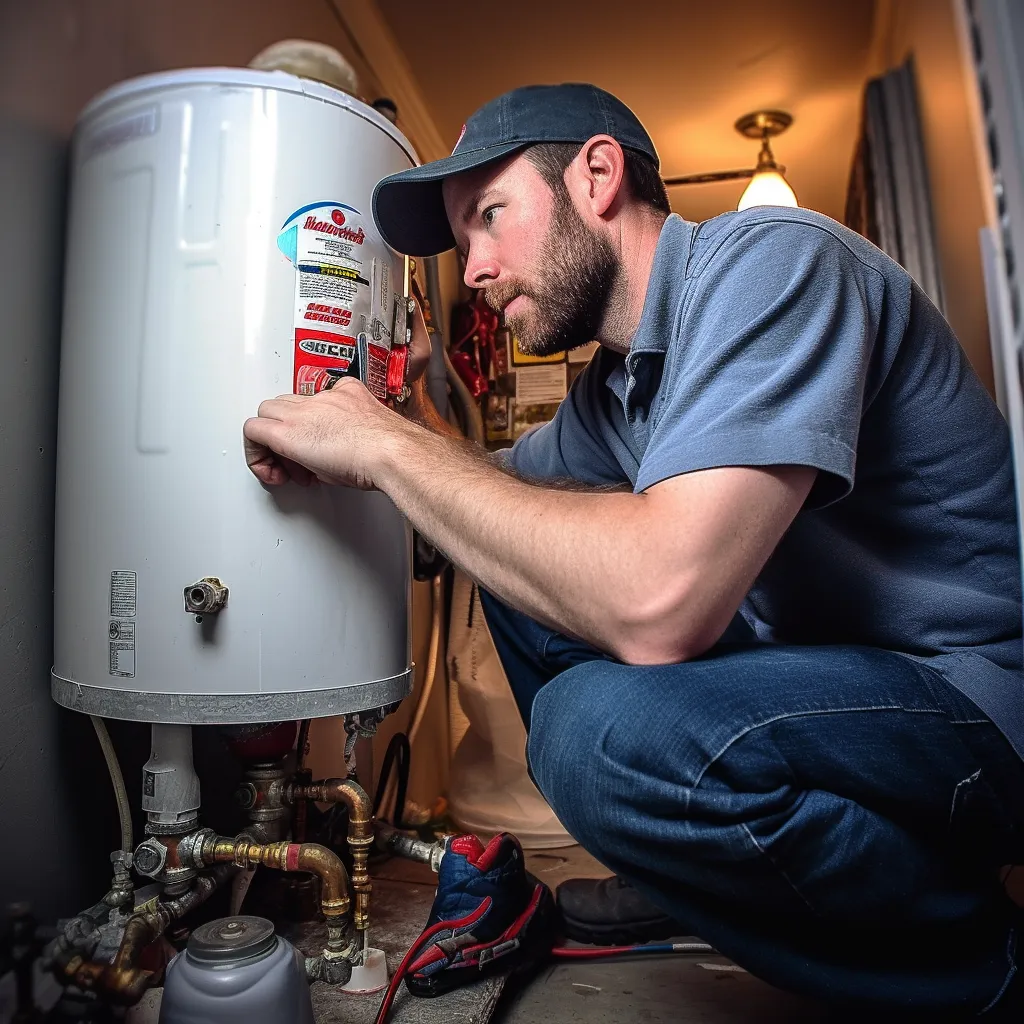
What are the maintenance requirements for non condensing tankless water heaters?
Non condensing tankless water heaters require regular maintenance to ensure optimal performance and longevity:
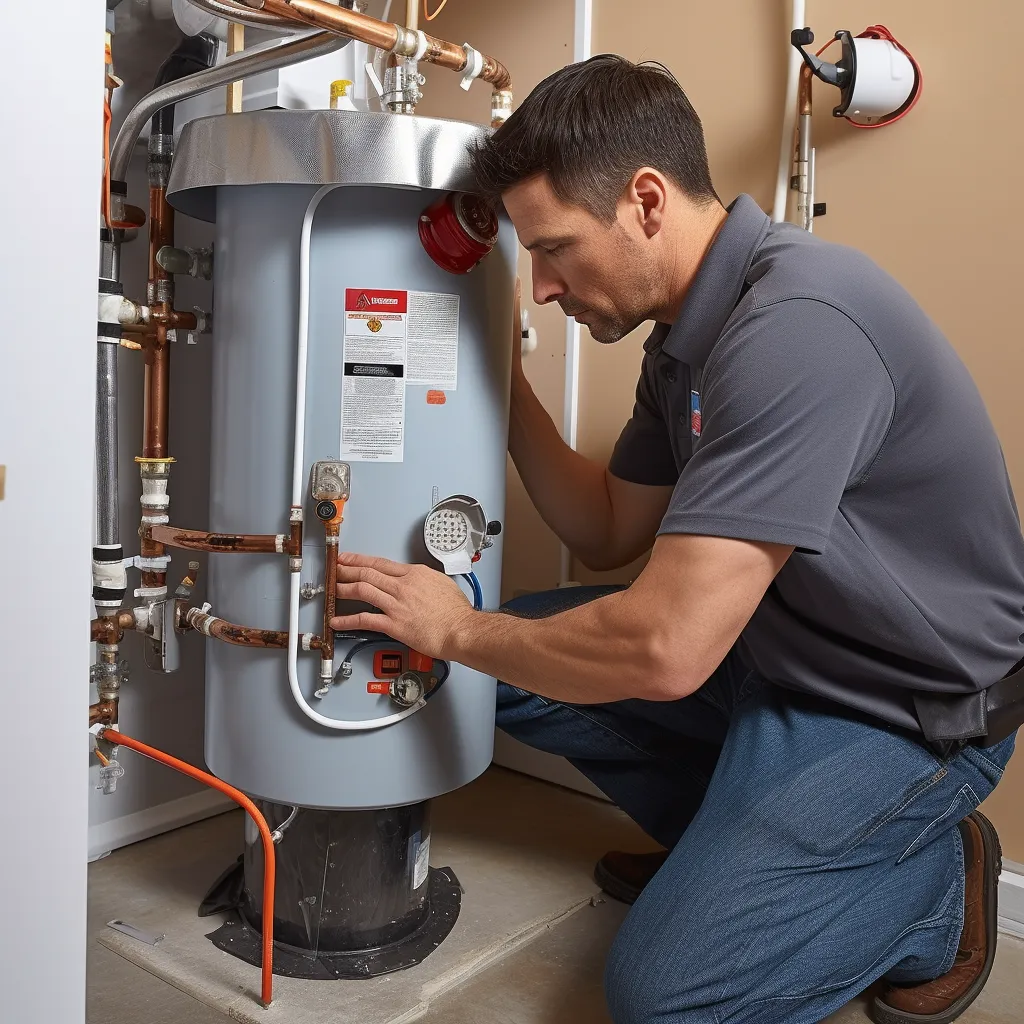
One key maintenance task is descaling, which involves removing mineral deposits that can accumulate inside the unit over time. This can be done by flushing the system with a descaling solution recommended by the manufacturer. It's important to follow the specific instructions provided to prevent any damage to the heating elements.
Checking and cleaning the air intake and exhaust vents is crucial to avoid any blockages that can hinder proper combustion and ventilation.
Inspecting the burner and heat exchanger for any signs of corrosion or damage is also recommended.
Another maintenance requirement is checking the filters and cleaning or replacing them as necessary. The filters prevent debris from entering the unit and clogging the internal components.
Regularly inspecting the water and gas connections for any leaks is essential for safety and efficiency.
It's recommended to consult the manufacturer's instructions for a comprehensive maintenance schedule and guidelines specific to the non condensing tankless water heater model. Following these maintenance requirements will not only prolong the lifespan of the unit but also ensure efficient and reliable operation.
How to choose between a non condensing vs condensing tankless water heater
A non-condensing and a condensing tankless water heater have their own benefits and drawbacks, so it's crucial to think about certain factors before making a decision.

Non-condensing tankless water heaters are the traditional option that have been widely used for many years. These water heaters typically have lower upfront costs compared to their condensing counterparts. They heat water on demand, meaning there's no need for a storage tank, resulting in more compact and space-saving installations.
Non-condensing tankless water heaters are also generally more straightforward to install and maintain.
However, one drawback of non-condensing tankless water heaters is their lower energy efficiency. These units have a lower efficiency rating compared to condensing models, as they exhaust hot gases into the atmosphere. This hinders their ability to extract heat from the flue gases fully. As a result, non-condensing tankless water heaters tend to waste more energy, leading to higher utility bills in the long run.
On the other hand, condensing tankless water heaters are known for their superior energy efficiency. These units utilize a secondary heat exchanger to extract heat from the flue gases, resulting in significantly higher efficiency ratings. By condensing the exhaust gases, the unit maximizes heat transfer, reducing energy waste and cutting down on heating costs.
Although condensing tankless water heaters offer excellent energy efficiency, they do come with a higher initial cost compared to non-condensing models.
Condensing tankless units are more complex and require additional components, such as a drain system for condensate disposal. The installation process may be more involved and could require professional assistance.
Condensing tankless water heaters may have more specific venting requirements. Due to the condensation process, they produce acidic condensate, which requires specialized venting materials to prevent damage to the unit and its surroundings. These additional installation considerations should be taken into account when deciding between a non-condensing and a condensing tankless water heater.

Researching condensing vs non condensing tankless water heaters
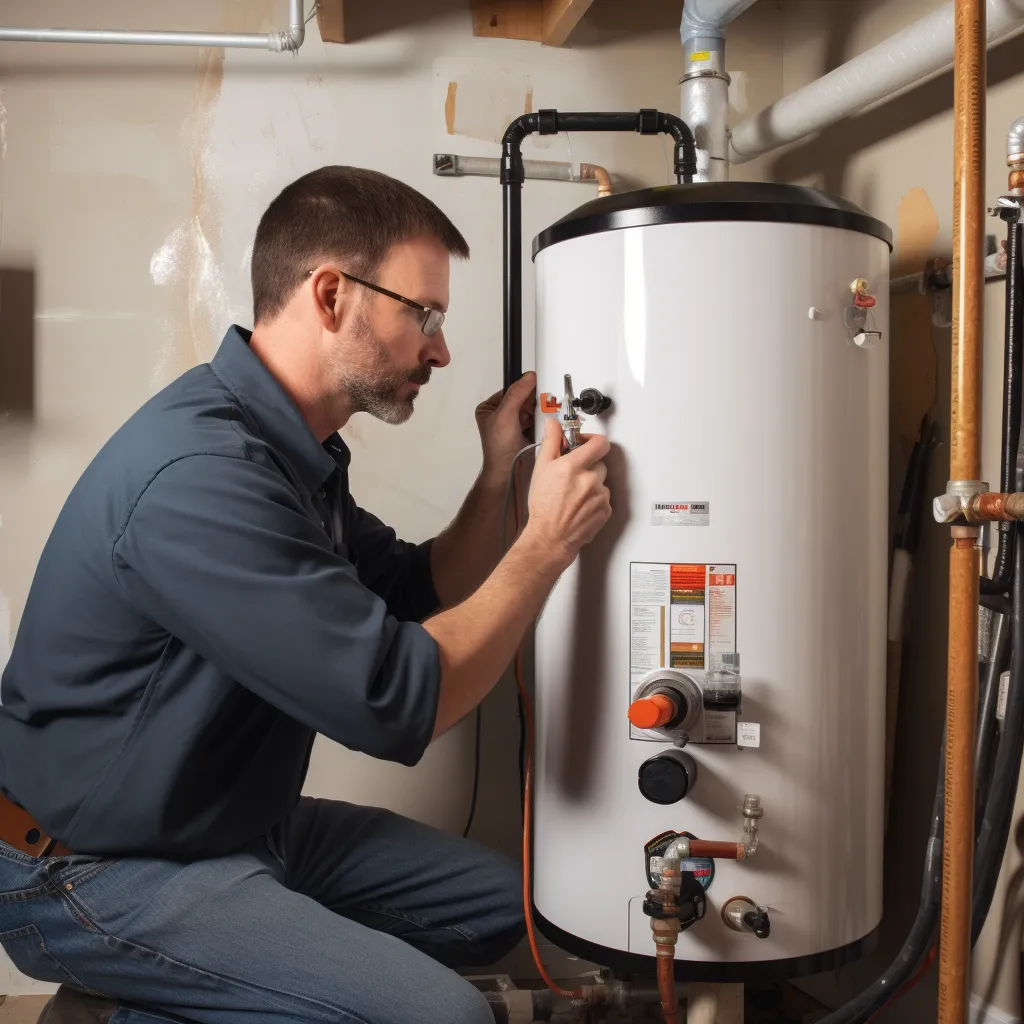
It's essential to take the time to find the perfect tankless unit for your home. Evaluating the benefits and drawbacks of different types of water heaters will aid you in making an informed decision. One crucial factor to consider is whether to go with a condensing or non-condensing water heater. Although the non-condensing option may seem initially affordable, it's important to note that these units tend to waste energy and require more maintenance. On the other hand, condensing tankless water heaters offer greater cost-effectiveness and can help reduce your utility bills. By conducting thorough research and choosing the optimal water heater type, you can enjoy a consistent supply of hot water while also saving on energy costs.
Contact Us
GET IN FULL TOUCH
PHONE (469) 838-5525
EMAIL:
jason@waterheatersinplanocom
Evolution Plumbing
Plano, TX 75023
Texas Plumbers License: M-44821
